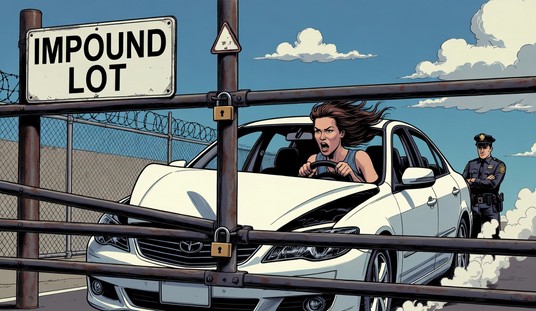David Brooks, writing in the New York Times, notes that the cultural elites are complaining bitterly that they’ve got what they wanted. America is gone.
When foreign visitors used to describe American culture, they generally settled on different versions of one trait: energy. Whether driven by crass motivations or spiritual ones, Americans, visitors agreed, worked more frantically, moved more and switched jobs more than just about anybody else on earth.
That’s changing. In the past 60 years, for example, Americans have become steadily less mobile… we are now at historic lows, no more mobile than people in Denmark or Finland. …
Peter Beinart wrote a fascinating piece for National Journal, arguing that Americans used to have much more faith in capitalism, a classless society, America’s role in the world and organized religion than people from Europe. But now American attitudes resemble European attitudes, and when you just look at young people, American exceptionalism is basically gone.
But why aren’t they delighted? Isn’t this what they’ve always wanted? An America more like Europe? With European defense (spell it “defence”), health policies, social attitudes and safety nets? And now that they’ve gotten them, why so serious?
Maybe people should be more careful about what they want because they may get it. Arthur Conan Doyle wrote story titled the Last of the Legions in which he described a meeting between a delegation laden with demands and someone prepared to grant them.
“The legions go at once,” said the viceroy. “You will doubtless rejoice to hear that within a month there will be no Roman soldier in the island, nor, indeed, a Roman of any sort, age, or sex, if I can take them with me.”
The faces of the Britons were shadowed, and Caradoc, a grave and thoughtful man, spoke for the first time.
“But this is over sudden, your excellency,” said he. “There is much truth in what you have said about the pirates. From my villa near the fort of Anderida I saw eighty of their galleys only last week, and I know well that they would be on us like ravens on a dying ox. For many years to come it would not be possible for us to hold them off.”
The viceroy shrugged his shoulders. “It is your affair now,” said he. “Rome must look to herself.”
The last traces of joy had passed from the faces of the Britons. Suddenly the future had started up clearly before them, and they quailed at the prospect.
“There is a rumour in the market-place,” said Celticus, “that the northern Barbarians are through the gap in the wall. Who is to stop their progress?”
“You and your fellows,” said the Roman.
Clearer still grew the future, and there was terror in the eyes of the spokesmen as they faced it.
“But, your excellency, if the legions should go at once, we should have the wild Scots at York, and the Northmen in the Thames within the month. We can build ourselves up under your shield, and in a few years it would be easier for us; but not now, your excellency, not now.”
“Tut, man; for years you have been clamouring in our ears and raising the people. Now you have got what you asked. What more would you have? Within the month you will be as free as were your ancestors before Cæsar set foot upon your shore.”
“For God’s sake, your excellency, put our words out of your head. The matter had not been well considered. We will send to Rome. We will ride post-haste ourselves. We will fall at the Emperor’s feet. We will kneel before the Senate and beg that the legions remain.”
The Roman proconsul rose from his chair and motioned that the audience was at an end.
“You will do what you please,” said he. “I and my men are for Italy.”
The delegation got what they wanted. “I and my men are for Italy.” The pirates are your problem. Today the equivalent phrase is: we’re for history. The generation of squares that intellectuals hated so much has departed into the safety of their achievements, which by their mere existence now mock the present. They are resting on their laurels beneath the sod and we cannot now recall them to our aid.
Remember when? Do-wah-wee-wa-wah. There were Americans once. But that was then and this is now.
Tom Blumer asks “is it over and we just don’t know it? Have we lost our Founders’ government?” How do you lose a country? How do you mislay a civilization? Nobody lost America, in the sense it was misplaced, left somewhere that no one could remember. If it’s gone it’s because the clever people threw it away, they had no use for it, not knowing what it did.
“We are going to fundamentally transform America.” Well maybe you did. And surprise, surprise.
No generation ever loses a thing like freedom; it is the natural condition of man, the way he is born under the sky. It only goes away when too many people hunger for chains. And the thing is, when you really go looking for a defeat, for prison and for mediocrity — eventually you will find it.
[jwplayer config=”pjmedia_richardfernandez” mediaid=”34528″]
Did you know that you can purchase some of these books and pamphlets by Richard Fernandez and share them with you friends? They will receive a link in their email and it will automatically give them access to a Kindle reader on their smartphone, computer or even as a web-readable document.
The War of the Words for $3.99, Understanding the crisis of the early 21st century in terms of information corruption in the financial, security and political spheres
Rebranding Christianity for $3.99, or why the truth shall make you free
The Three Conjectures at Amazon Kindle for $1.99, reflections on terrorism and the nuclear age
Storming the Castle at Amazon Kindle for $3.99, why government should get small
No Way In at Amazon Kindle $8.95, print $9.99. Fiction. A flight into peril, flashbacks to underground action.
Storm Over the South China Sea $0.99, how China is restarting history in the Pacific
Tip Jar or Subscribe or Unsubscribe










Join the conversation as a VIP Member